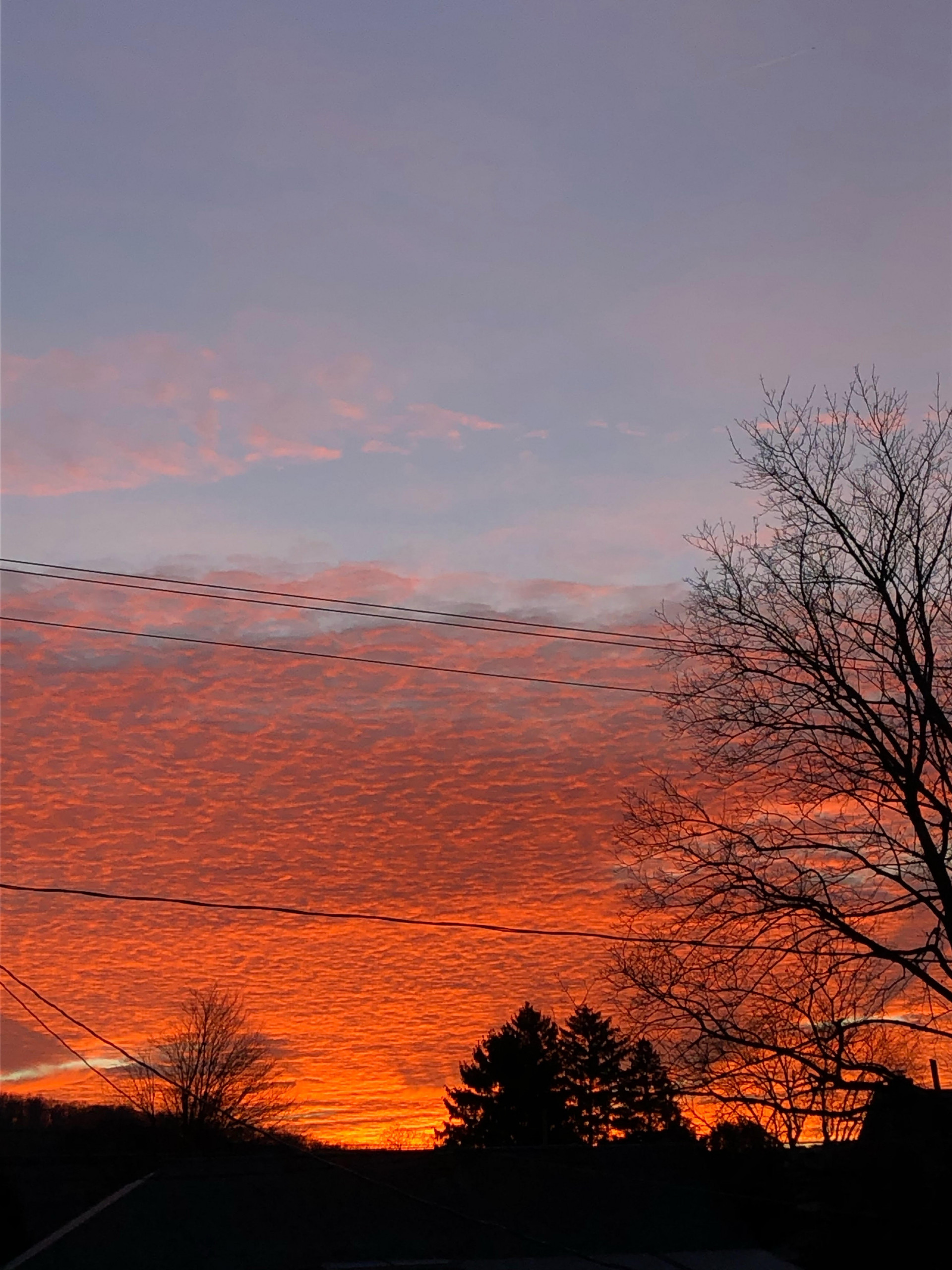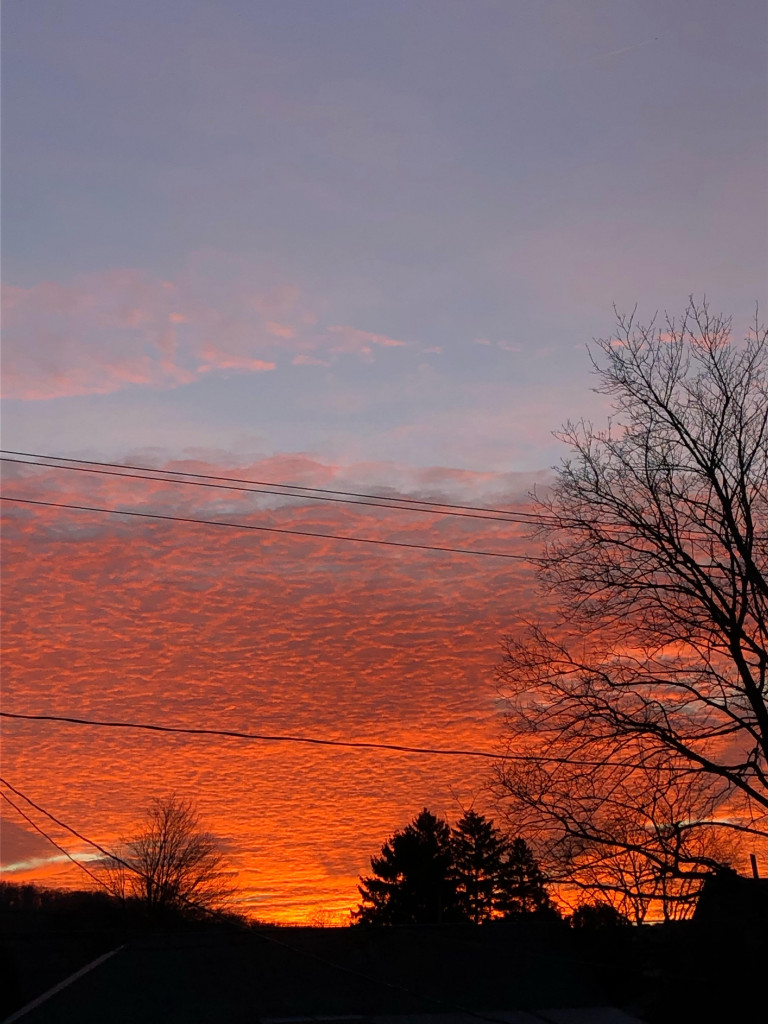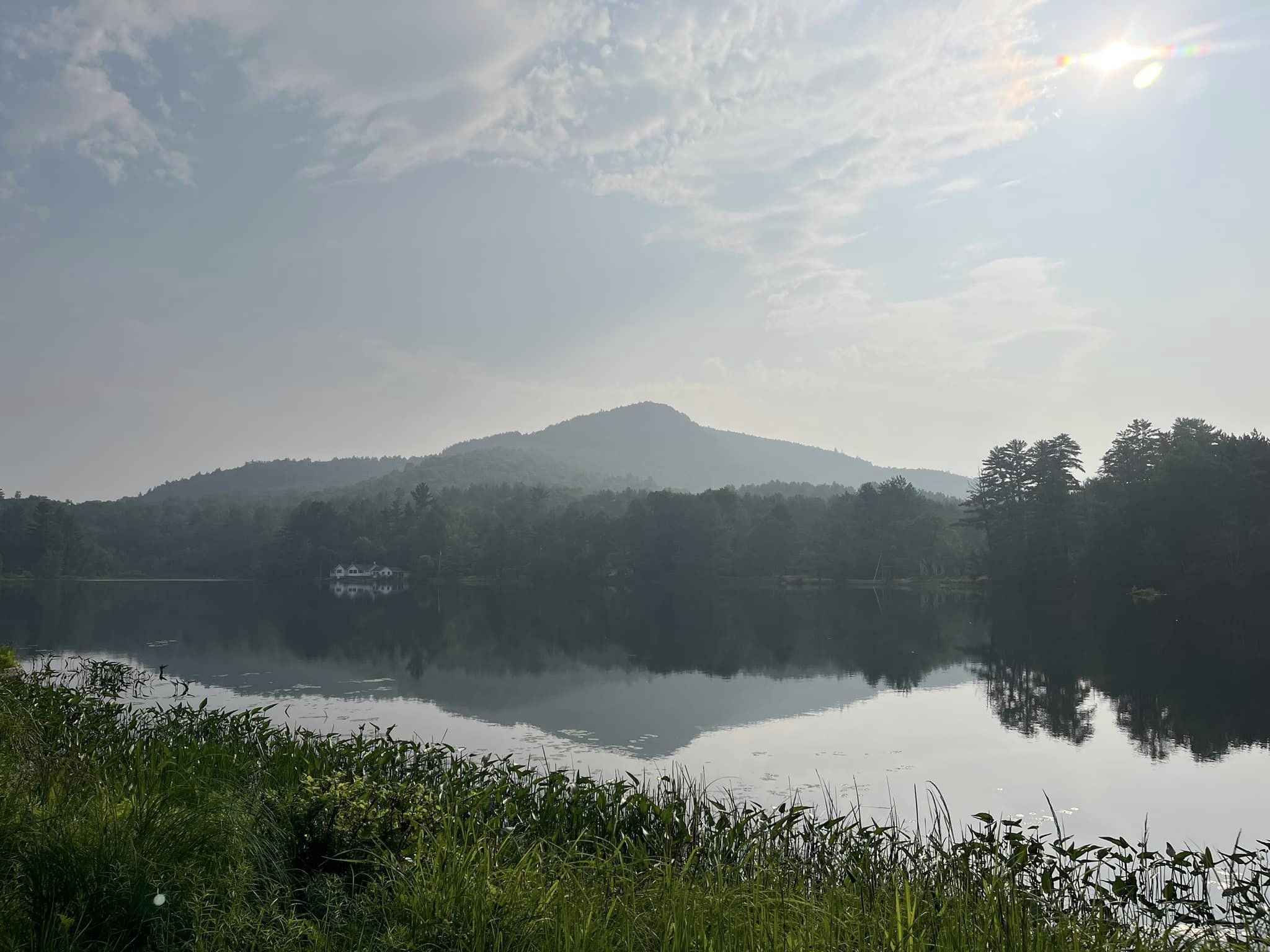Snowflakes
Exhalations fogging up thick-framed glasses.
Traditional Chinese instrumental music.
A peanut butter banana Clif bar.
An evening sky with colors so elaborate and vivid, it looked like a tropical fruit.
I have been on my fair share of runs at South Mountain Preserve, a local park maintained by a nonprofit wildlife conservancy. But this one, for whatever reason, was special. There are moments in life, few and far between, when exhilaration sets in at the realization that one is in exactly the right place at exactly the right time, doing exactly the right thing. Such moments are infinite. Like a set of helicopter blades whirring so fast they seem to not be moving at all, it is the feeling of a perfect paradox; hurtling ahead yet frozen still, the universe holds you in suspension. Something ethereal, elusive, and tender comes along to alight for the briefest moment before melting away.
Clearly, the run was a memorable one, and, as such, it has tumbled about in my head for over a year now. But something else also stamped itself into the waxen seal of my brain, something one level deeper, a question–why? Why in tarnation did the bubbling potion of random ingredients thrown into the pot on that December evening somehow become a magic elixir for transcendence? Inevitably, the search for answers leads to ridiculous counterfactuals. How different would things have been if I’d had a boring chocolate chip Clif bar instead (sorry chip lovers, but it’s a snoozer), or if the weather had been overcast rather than burning clear, or if I’d taken a (different) wrong turn on the trail, or if I’d listened to pop-punk rather than Zen music sitting in my car afterwards? Would they have been different at all? And what I find to be the more interesting, inverted question: if I were to go on another run one year later, at exactly the same time, in exactly the same weather conditions, along exactly the same route, etc., would it be sufficient to recreate that exact same indelible experience?
Let’s ground this a little more before things get too philosophical. I recently finished reading a book by Derek Thompson, a staff writer at The Atlantic and one of my favorite columnists, entitled Hit Makers: The Science of Popularity in an Age of Distraction. Derek’s contention is that we are Goldilocks creatures; we like things to be not too familiar and not too foreign, just in between. We crave familiar things packaged and presented in new ways. Think the endless stream of movies Marvel has been chugging out since the smashing success of Iron Man in 2008. Each franchise installment turned up the pressure on a firehose of money, because Marvel had discovered and adroitly calibrated itself to the secret formula of adding just the right sprinkle of novelty to each sequel (granted, knowing this in principle and knowing how to execute it are two different things entirely. See: DC in the last decade).
In Marvel’s headquarters, it takes teams of passionate and skilled writers, producers, and other film professionals working in synchronicity to ensure that movie-going audiences will, again and again, be met with anticipation at the title sequence and lingering delight when the credits roll. But here is the beauty of running; it can accomplish the same effortlessly, unexpectedly. The answer to the riddle I posed is not yes or no. The answer is that the question itself does not make sense, because no two runs are ever the same. Each one is a snowflake–irreproducible and ephemeral, melting away soon after you catch hold. Whatever you are experiencing, be it pure elation as you revel in your peak fitness, or heartbreak when you DNF a race for which you have been training for months, you are only experiencing it once. There will be other, similar circumstances–and, in particular, opportunities to learn from our mistakes–but they will always be different, whether in obvious or subtle ways. They will be familiar, but not too familiar.
For this reason, it is important to appreciate each run for what it is and not superimpose past experiences or expectations upon it. The pursuit to crudely reproduce those moments of transcendence will only be met with disappointment. Such a pursuit falls prey to the “Frankenstein fallacy” (a term I coined just now…is it that obvious?). This is the belief that you can reassemble organic experiences out of their concomitant parts. The Clif bar, the sunset, the music. These did not define my run at South Mountain Preserve. They were happy companions to something which happened to me, rather than something that was created by me. That, to me, is the key. I could go back again and again and never recapture what I felt precisely because it was a surprise. It was the serendipity of a snowflake touching my skin, coming into focus, and fading away.
Viktor Frankl, in his classic work Man’s Search for Meaning, explains the treasure of memories as evidence of having lived:
“Instead of possibilities in the future, [such people] have realities in the past–the potentialities they have actualized, the meanings they have fulfilled, the values they have realized–and nothing and nobody can ever remove these assets from the past.”
It is tempting to disinter old runs, the thrill and the glow and the glory, and chase after their ghosts. But each crystalline snowflake is exquisite in its own way. And if you don’t look now, it will melt before you ever get the chance.
~Vincent Behe
Add Comment
You must be logged in to post a comment.








